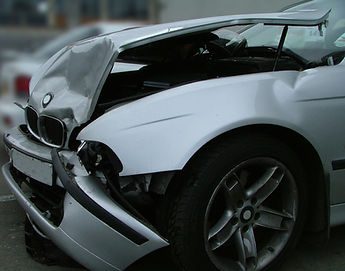Negligence is a centuries-old concept in tort law, which allows one party to recover damages when they have suffered an injury due to someone else's fault.
The rationale behind negligence is that a reasonable person should exercise reasonable care when they act by considering the potential harm they might foreseeably cause to other people.
There are four elements that must be present to prove negligence: (1) duty; (2) breach; (3) proximate cause; and (4) damages.
Duty: The defendant must have a duty under the law to act or avoid acting in a certain way. Whether a defendant owes a duty to a plaintiff depends on whether the plaintiff's injury is a reasonably foreseeable result of the defendant's conduct.
Negligence in South Carolina
Call 843-407-9268 or fill out the form below for a free consultation with a South Carolina auto accident lawyer.
Breach of Duty: After the defendant's duty is established, the plaintiff must prove that the defendant breached the duty. Some defendants may knowingly breach their duty, but others are unaware that they had a duty to act in a certain way. In the latter case, the question is whether a reasonable person in a similar situation would have foreseen the potential for harm to the plaintiff.
Proximate Cause: Next, the plaintiff must prove that the defendant's breach of a duty was the proximate cause of the plaintiff's injury.
This means that the plaintiff's injury would not have happened but for the defendant's act or failure to act. But it also means that the breach and resulting injury are closely related enough that a reasonable person in the defendant's situation would have foreseen the potential for harm to the plaintiff.
Damages: The plaintiff must show how he or she was harmed by the defendant's negligence. There are three types of damages: special, general, and punitive.
Special damages: these are quantifiable losses suffered because of defendant's neglience, such as medical bills, lost wages, and property damage.
General damages: these damages are not quantifiable in monetary terms, because they are not proven with a bill or a paycheck. General damages include the plaintiff's pain and suffering, emotional distress, etc.
Punitive damages: these are not meant to compensate the plaintiff, but to punish a defendant who has acted in an outrageous manner. The idea behind punitive damages is that it will encourage others to act more carefully in similiar situations, and thus prevent a similar harm from happening again. Punitive damages are not usually awarded in ordinary negligence cases, but only when the defendant has acted recklessly or with wanton disregard of a foreseeable risk.
Business Hours
Monday: 9:00 to 5:00
Tuesday: 9:00 to 5:00
Wednesday: 9:00 to 5:00
Thursday: 9:00 to 5:00
Friday: 9:00 to 5:00
Business Hours
Monday: 9:00 to 5:00
Tuesday: 9:00 to 5:00
Wednesday: 9:00 to 5:00
Thursday: 9:00 to 5:00
Friday: 9:00 to 5:00


